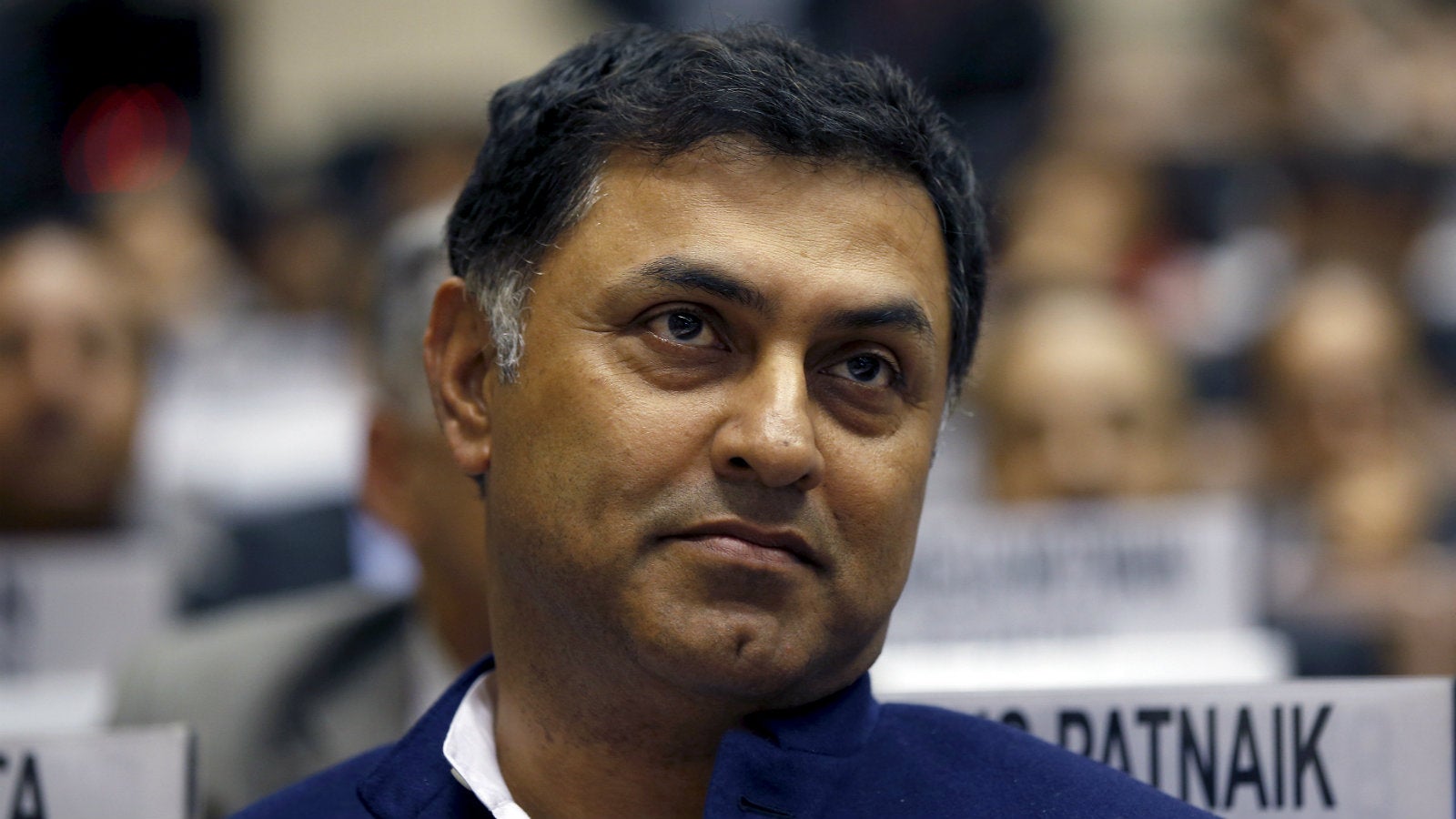SoftBank says an internal investigation found COO Nikesh Arora has done nothing wrong
SoftBank Group’s second-in-command seems in little danger of losing his status as heir apparent to the CEO.


SoftBank Group’s second-in-command seems in little danger of losing his status as heir apparent to the CEO.
The telecom and investment major said a committee of independent board members has reviewed the allegations that a group of investors had raised against chief operating officer Nikesh Arora, and given him a clean chit.
“As I said when these allegations first became public, I have complete trust in Nikesh and I am pleased the special committee has looked into these claims thoroughly and concluded they are without merit,” SoftBank Group chairman and CEO Masayoshi Son said in an emailed statement.
Arora joined SoftBank in 2014 after a nearly decade-long stint at Google. In May 2015, Son—one of the richest men in Japan—named Arora the primary candidate to succeed him atop the company.
Arora was the third-highest-paid executive in the world last year, according to Bloomberg. He earned about 16.6 billion yen ($135 million) between joining the company in September 2014 and the end of March 2015.
In January, a group of unidentified SoftBank shareholders wrote to SoftBank voicing concerns about Arora. They accused him of having conflicts of interest and criticized him for the poor performance of investments he made on behalf of SoftBank. The anonymous investors also raised concerns over Arora’s compensation. The 11-page letter, dated Jan. 20, was sent by US-based law firm Boies Schiller & Flexner, which did not disclose whom it was representing.
“Arora’s investment strategy … appears to be nothing more than throwing a dart at a dartboard,” the letter said. “How many more millions of dollars of shareholder value must be wasted before the board realizes something must be done?”
The board, in its statement today (June 20), said the special committee appointed to look into the allegations “has concluded that the claims concerning the conduct of Mr. Arora during his tenure at SBG are without merit.”
India-born Arora has been widely credited for channeling SoftBank’s money into Indian startups; most of the group’s Indian investments were made after he joined.
SoftBank is now one of the largest investors in the Indian startup sector, having plowed more than $2 billion into companies like Snapdeal, Ola, InMobi, OYO Rooms, and Housing.com. The latter investment, in an Indian real estate portal, sparked criticism, as Housing.com ran into trouble shortly after SoftBank’s investments.
The letter sent by Boies Schiller also questioned SoftBank’s decision to lead a follow-up funding round in Indian e-commerce major Snapdeal, at a time when Snapdeal’s CEO had told the media that his venture was “exceptionally well-funded at least for a few years.”